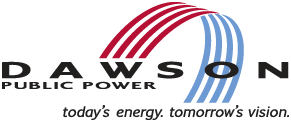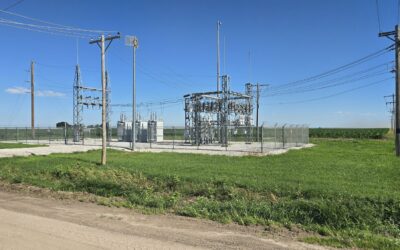
Gwen Kautz
General Manager
Plenty of bills affecting public power were introduced for the 2023-2024 legislative session, sparking extensive discussions about their implications.
Nebraska Legislature
I’ve abbreviated the bill description and kept the impact to Dawson PPD brief. If you would like more information on any of these, you can find them on Nebraska’s legislative website.
- LB 287: Proposes a statewide website for public notices, shifting away from traditional newspaper publications. This is a logical move given the declining readership of print newspapers.
- LB 304: Requires Public Power Districts to disclose membership dues and lobbying fees on their websites; a positive step that could extend to all lobbying agencies for consistency.
- LB 969: Mandates sealed bids for projects exceeding $750,000 for systems like Dawson PPD with under $500 million in annual revenue. It prompts policy updates for all districts, which we see as beneficial.
- LB 366: Extends public record compliance time from 4 to 8 hours, with nonresident requesters bearing charges for actual time. This aligns with our transparent operations.
- LB 637: Mandates public commentary platforms at meetings; a practice already in place at Dawson PPD.
- LB 650: Classifies cybersecurity-related records as exempt from public disclosure; essential for safeguarding infrastructure and customer data.
- LB 61: Relaxes restrictions on leasing telecommunications fiber, potentially benefiting rural areas lacking broadband service.
- LB 399: Requires public meetings in counties where generation projects exceeding 10 megawatts are planned; promoting transparency.
- LB 1300: Addresses state preparedness for Pacific conflicts, emphasizing caution in vendor selection; which aligns with our stance on vendor scrutiny.
- LB 1358: Proposes a statutory increase in board member salaries, which did not affect Dawson PPD directors.
- LB 1218: Focuses on electric vehicle charging station deployment, a measure that may not directly benefit our customers and could potentially increase charging costs.
Federal Legislation
In 2023 and 2024, there have been significant federal developments that impact electric distribution in the United States:
- The Distribution Transformer Efficiency & Supply Chain Reliability Act of 2024 – This act addresses the efficiency standards for distribution transformers, which are crucial for stepping down higher-voltage electricity for end-use customers. The legislation aims to stabilize the domestic transformer manufacturing industry and meet increasing demand without exacerbating existing supply chain issues or undermining American steel production.
- HR 2875: Grid Reliability and Resiliency Improvements – This bill directs the North American Electric Reliability Corporation (NERC), in consultation with various energy authorities, to submit a report to Congress on the reliability of the electric grid. It focuses on identifying and preventing risks to the long-term reliability of the electric grid and electricity generation.
These pieces of legislation are designed to enhance the efficiency and reliability of the national electric distribution system while also addressing the challenges posed by supply chain vulnerabilities and the need for energy independence.
However, there are potential drawbacks:
- Efficiency standards may worsen supply shortages, delaying production as manufacturers switch. The legislation could harm U.S. grain-oriented electrical steel production, affecting competitiveness and jobs.
- Hastily applied new standards could jeopardize grid reliability due to uncertain transitions to new transformer materials.
- The legislative changes could lead to higher utility costs, potentially increasing consumer energy bills.
- Relying on a sole producer of steel without built in characteristics specifically for electric distribution, which depends on imported materials, creates vulnerabilities for grid stability and national security.
These potential negative impacts are based on concerns raised by industry stakeholders and may not reflect the final outcomes. The goal of the legislation is to balance the need for improved efficiency and grid reliability with the practicalities of manufacturing and supply chain management.
OTHER NEWS
Dawson PPD plans substation work
Two rural Dawson Public Power District substations will be getting upgrades after the 2024 irrigation season. Sub 26, located southwest of Gothenburg, will be upgraded as part of a voltage conversion. Sub 35, located northeast of Gothenburg, is being improved to...
Dawson PPD’s board considers contract, load growth
Dawson Public Power District’s regular board meeting was held on July 3, 2024. Darin Bloomquist, General Manager of the Nebraska Electric Generation & Transmission Cooperative, gave an update on the organization’s work....
A day in the life of a consumer accounting representative
Have you ever wondered what happens behind the scenes when you call or visit Dawson PPD headquarters? Consumer Accounting Representatives (CARs) wear many hats, juggling multiple tasks throughout the day to keep things running smoothly.


